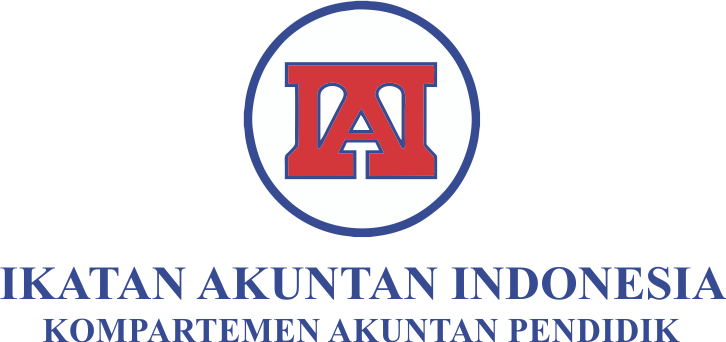Does Divulgation of Corporate Social Responsibility Information Influence Earnings Response Coefficient?
DOI:
https://doi.org/10.34209/equ.v24i2.3770Keywords:
CSR, ERC, Cumulative Abnormal Return, Unexpected EarningsAbstract
Companies that have reported on their social responsibility activities certainly expect an increase in the Firm value. The profits generated by the company have the power of response. The market response to earnings information can be seen from the size of the Earnings Response Coefficient (ERC). This research aims to examine if the divulgation of Corporate Social Responsibility (CSR) information influenced the ERC. CSR disclosure is measured using a dichotomous method, while ERC is obtained from the regression between Cumulative Abnormal Return (CAR) and Unexpected Earning (UE). The findings of this research show that the divulgation information of CSR in the sustainability reports has no effect on the ERC.
References
Cannon, Joseph P., William D. Perreault, Jr., E. Jerome McCarthy. 2009. Pemasaran Dasar: Pendekatan Manajerial Global. Sixteenth Edition. Jakarta: Salemba Empat.
Dazia, Ely., Maulita, Dian., & Framita, Dien S. 2019. Analisis Pengungkapan Corporate Social Responsibility (CSR) dalam Laporan Tahunan Terhadap Koefisien Respon Laba Akuntansi. Jurnal Akuntansi Universitas Serang Raya.Vol 1, No 1, pp. 40-48.
EU. 2001. Green paper on promoting a European framework for Corporate Social Responsibility. European Union, Brussels.
EU. 2011. A renewed EU strategy 2011-2014 for Corporate Social Responsibility.COM 681 final. European Union, Brussels.
Gujarati, Damodar & Porter, Dawn. 2008. Basic Econometrics. McGraw-Hill/Irwin: 5 edition.
Harazin, Piroska & Kósi, Kálmán. 2013. Social Challenges: Social Innovation through Social Responsibility. Periodica Polytechnica: Social and Management Sciences, pp. 27-38.
Mardikanto, Totok. 2014. CSR (Corporate Social Responsibility): tanggung jawab sosial korporasi. Bandung: Alfabeta.
Martono & Harjito, D. Agus. 2010. Manajemen Keuangan (Edisi 3). Yogyakarta: Ekonisia.
Pemerintah Republik Indonesia. 2007. Undang-undang Nomor 40 Tahun 2007 tentang Perseroan Terbatas. Jakarta.
Palupi, Wulandari & Safitri. 2017. Pengaruh Pengungkapan Informasi Proyeksi dan Tanggung Jawab Sosial Perusahaan terhadap Koefisien Respon Laba. Jurnal Riset Akuntansi dan Keuangan Indonesia, 2(1), pp. 91-101
Porter, M. E., & Kramer, Mark R. 2006. Strategy and society: the link between competitive advantage and Corporate Social Responsibility. Harvard Business Review 84, no. 12.
Rusdin. 2016. Pengungkapan Corporate Social Responsibility (CSR) dan Implikasinya terhadap Earning Response Coefficient (ERC). Jurnal AdBispreneur Vol. 1, No. 2, pp. 153-164.
Sayekti, Yosefa & Wondabio, L.S. 2007. Pengaruh CSR Disclosure terhadap Earning Response Coefficient. Simposium Nasional Akuntansi X Unhas Makassar, pp. 13.
Scott, W. R. 2009. Financial Accounting Theory. Fifth Edition. Canada: Prentice-H.
Social Service Europe. 2012. Social innovation: the role of social service providers. Briefing paper. http://solidar.org/IMG/pdf/sse-social_innovation_the_role_of_social_service_providers.pdf
Susanto, Yulius Kurnia. 2012. Determinan Koefisien Respon Laba. Jurnal Akuntansi dan Manajemen, Vol.23, No.3, pp. 158.
World Business Council for Sustainable Development (WBCSD). 2004. Cross-cutting themes—Corporate responsibility. http://www.wbcsd.org/
Downloads
Published
Issue
Section
License
Syarat yang harus dipenuhi oleh Penulis sebagai berikut:Penulis menyimpan hak cipta dan memberikan jurnal hak penerbitan pertama naskah secara simultan dengan lisensi di bawah Creative Commons Attribution License yang mengizinkan orang lain untuk berbagi pekerjaan dengan sebuah pernyataan kepenulisan pekerjaan dan penerbitan awal di jurnal ini.
Penulis bisa memasukkan ke dalam penyusunan kontraktual tambahan terpisah untuk distribusi non ekslusif versi kaya terbitan jurnal (contoh: mempostingnya ke repositori institusional atau menerbitkannya dalam sebuah buku), dengan pengakuan penerbitan awalnya di jurnal ini.
Penulis diizinkan dan didorong untuk memposting karya mereka online (contoh: di repositori institusional atau di website mereka) sebelum dan selama proses penyerahan, karena dapat mengarahkan ke pertukaran produktif, seperti halnya sitiran yang lebih awal dan lebih hebat dari karya yang diterbitkan. (Lihat Efek Akses Terbuka).








